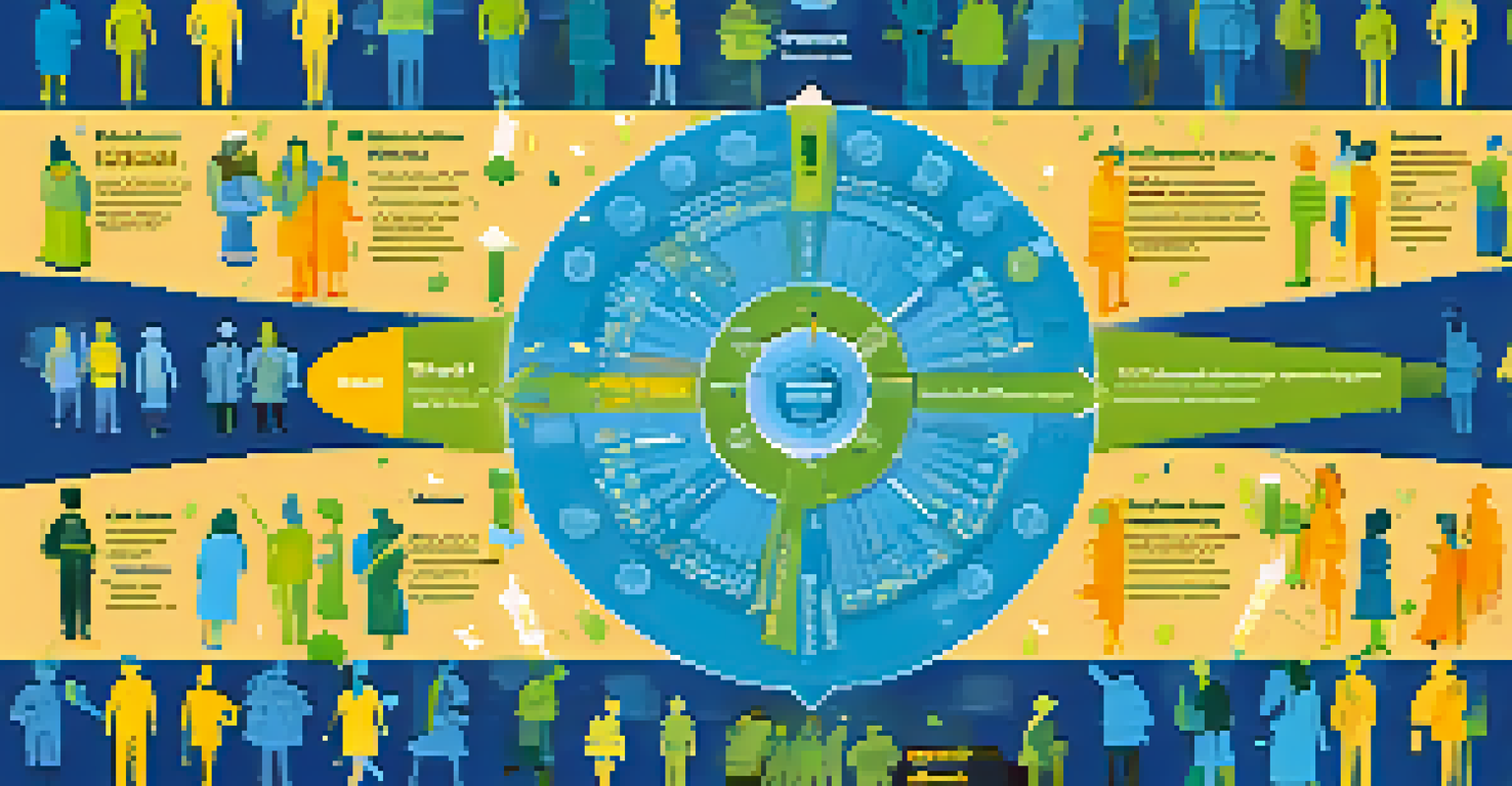The Science Behind Vaccines: How They Protect Your Health

What Are Vaccines and How Do They Work?
Vaccines are biological preparations designed to provide immunity against specific diseases. They work by introducing a harmless component of the pathogen, such as a protein or inactivated virus, into the body. This exposure trains your immune system to recognize and fight the real pathogen if it encounters it in the future.
Vaccines are the tugboats of preventive health.
Think of vaccines as a rehearsal for your immune system. Just like you practice for a play, your body needs to prepare for potential infections. When vaccinated, your immune system learns to identify the invader and respond effectively, often before you even notice you're sick.
In essence, vaccines prime your body's defenses without causing the disease, allowing it to respond swiftly and effectively should it ever come across the actual virus or bacteria.
The Role of Antibodies in Immunity
Antibodies are proteins produced by your immune system in response to pathogens. When you get vaccinated, your body creates specific antibodies tailored to fight the introduced components of the pathogen. This is crucial because these antibodies remain in your system, ready to spring into action if needed.

Imagine antibodies as specialized soldiers trained to recognize and eliminate threats. Once your immune system has created these soldiers, they are on standby, ready to defend your body against future attacks from the real pathogen.
Vaccines Train Your Immune System
Vaccines introduce harmless components of pathogens to prepare your immune system to recognize and combat real infections.
Thanks to the memory cells created during vaccination, your immune system can recall how to produce these antibodies quickly, often preventing illness before it starts.
Herd Immunity: A Community Defense Strategy
Herd immunity occurs when a significant portion of a population becomes immune to a disease, either through vaccination or previous infections. This collective immunity helps protect those who cannot be vaccinated, such as individuals with certain medical conditions. The more people who are vaccinated, the harder it is for diseases to spread.
The best way to protect the vulnerable is through vaccination.
Think of herd immunity like a shield around the most vulnerable in your community. If enough people are protected, the virus has fewer opportunities to jump from person to person, effectively lowering the risk for everyone.
This is why widespread vaccination is crucial; it not only protects you but also safeguards those who are at higher risk.
Common Misconceptions About Vaccines
Despite their proven effectiveness, vaccines often face skepticism and misconceptions. Common myths include the belief that vaccines cause autism or that natural infections are better for immunity. It's essential to address these misconceptions with evidence-based information.
Consider the story of a parent who hesitated to vaccinate due to misinformation. After researching credible sources and consulting healthcare professionals, they discovered that the benefits of vaccination far outweighed the risks, ultimately deciding to protect their child.
Herd Immunity Protects Communities
Widespread vaccination helps create herd immunity, shielding those who cannot be vaccinated and reducing the spread of diseases.
By understanding the science behind vaccines, we can dispel myths and encourage informed decisions that prioritize health and safety.
The Importance of Vaccination Schedules
Vaccination schedules are designed to ensure that individuals receive vaccines at the optimal times for their health. Following these schedules helps maximize immunity and protection during vulnerable periods, particularly in childhood when the immune system is still developing.
Think of vaccination schedules as a carefully crafted roadmap, guiding you towards the best defense against infectious diseases. Missing doses or delaying vaccinations can leave individuals at risk, allowing preventable diseases to spread.
By adhering to these schedules, we not only protect ourselves but contribute to the overall health of our communities.
Vaccines and Emerging Diseases
Vaccines play a critical role in combating emerging diseases, such as COVID-19. The rapid development and deployment of vaccines in response to global health crises demonstrate the adaptability of vaccine science. This ongoing research and innovation are vital in protecting public health.
Consider the COVID-19 pandemic as a prime example of how quickly science can respond when faced with a threat. Researchers around the world collaborated to create vaccines in record time, showcasing the power of scientific advancement and global cooperation.
Innovations Shape Vaccine Future
Advancements like mRNA technology promise to enhance vaccine effectiveness and personalize immunizations for better health outcomes.
As new diseases emerge, continued investment in vaccine research is essential to ensure we are prepared for future challenges.
The Future of Vaccines: Innovations on the Horizon
The future of vaccines is bright, with exciting innovations on the horizon. From mRNA technology to personalized vaccines, advancements are paving the way for more effective and tailored immunizations. These innovations promise to enhance our ability to respond to both existing and emerging diseases.
Imagine a world where vaccines can be customized to address individual health needs, much like how personalized medicine is evolving. This could lead to more effective immunizations and better overall health outcomes for diverse populations.

As science continues to evolve, so too will our understanding and approach to vaccines, making them an even more powerful tool in protecting public health.